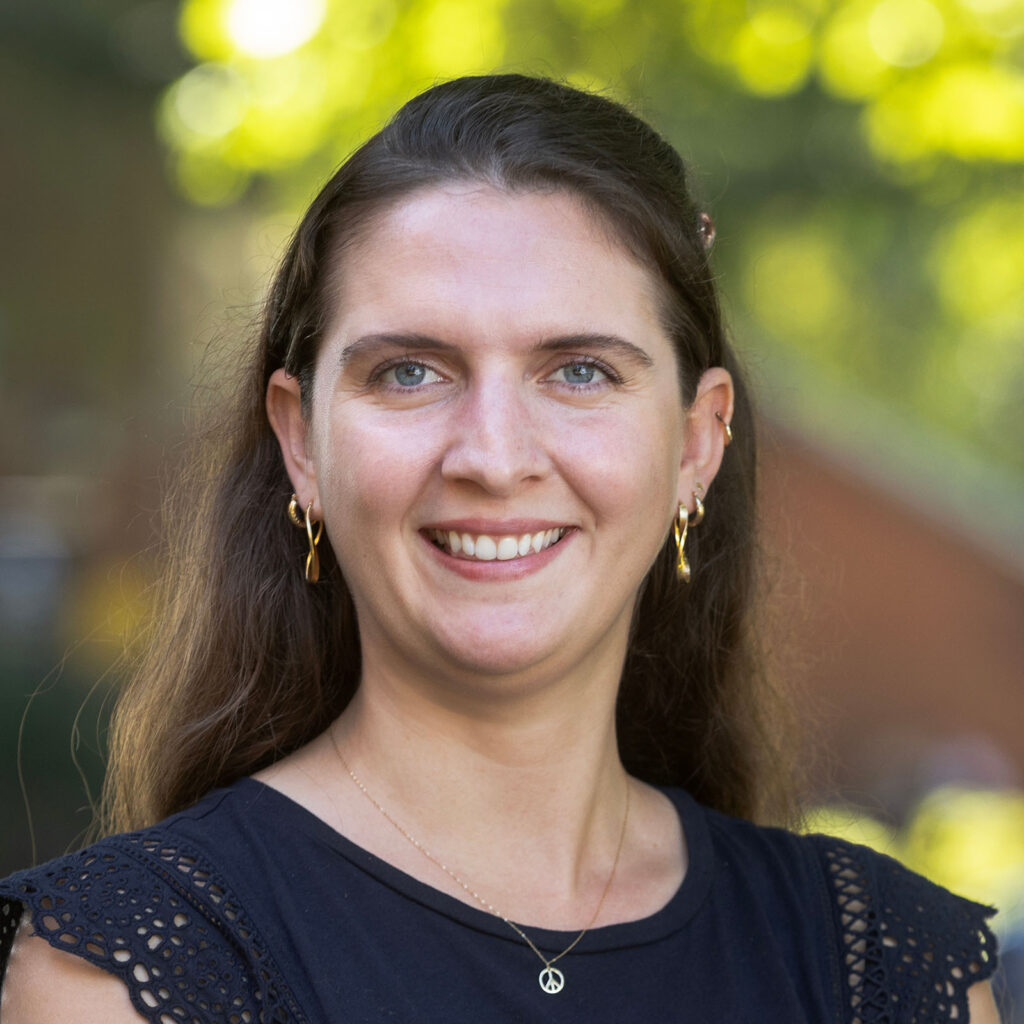 Download High Resolution
Download High Resolution
Abigail C. Moore
Assistant Professor of Criminology, Criminal Justice and Sociology; Director of Criminology and Criminal Justice
| Credentials: | BA, Yale University MA, University of Virginia PhD, University of Virginia |
| Associated Departments: | Criminal Justice, Sociology |
| Office: | Leggett 616 |
| Phone: | |
| Email: | amoore@randolphcollege.edu |
News Headlines
As a cultural theorist I am especially concerned with what power is, how it functions, how we can describe it, and what can be done to rectify power dynamics of domination in the world. My joint fields of sociology and criminology have been the perfect home for my current work about the language used to describe violence and race within various legal systems.
I’m thrilled about the opportunity to start a brand-new program at Randolph. Starting from scratch offers the opportunity to think very carefully about how to craft a curriculum that balances skills for the current job market, the needs of our greater society, as well as student interests.
My teaching style is very interactive and rooted in discussion. Students should learn as much from each other as from me, and learning to listen well and clearly communicate concepts and ideas are essential to any field, but especially to those as oriented to the real-world as criminology and sociology.
I try to keep my syllabi fresh every year, with lots of contemporary reading assignments from news sources and various forms of media. In my classes we spend a lot of time figuring out how to read a piece: who published it and what might that tell us about what their goals and motivations were in writing the article? What kind of methods were used, and how do they shape the author’s conclusions? What kinds of sources and data were included, and how old are they? Were there other available categories of source and data that were left out? These questions are as important to watching a TikTok as they are to reading a research paper.
Students in my courses take a constructivist approach, which means asking why and how certain phenomena get classified as crime, deviance, or social problems. Who gets to define those categories, how, and with what consequences?
We’ll especially be looking at changes throughout history—100 years ago it was illegal for women to wear trousers in most public settings; now of course most of us consider it very normal. Twenty years ago, marijuana use was illegal; now a majority of Americans favor its decriminalization. What do changes like these tell us about the cultural production of our ideas about deviance and criminality?
Outside of work, I love to stay active outside. I regularly run, walk, and bike the Blackwater Creek Trail, as well as the trail on Percival’s Island downtown. I go camping at least one weekend per month, all throughout the year, and I love to kayak, rock climb, hike, and birdwatch. Winter is my favorite season for outdoor activities—no humidity, and no bugs!
In addition to outdoor activities, I focus on creative reuse: figuring out how to refresh and reuse old things instead of buying new ones. I sew and make clothing and love a good home project.